|
Spiritual accompaniment has been discussed greatly today within the Church and is an important theme of Pope Francis’ papacy. While accompaniment is manifested throughout the Old Testament and in Christ’s ministry, it is important for the Church to consider how best to implement it in modern times. What does accompaniment look like today? How do we best accompany others along their spiritual journey in deepening their relationship with Jesus Christ? The Art of Accompaniment: Theological, Spiritual, and Practical Elements of Building a More Relational Church, a Catholic Apostolate Center resource developed by Colleen Campbell and Thomas Carani, assists in the growth of true accompaniment within the Church today. Below are ten quotes from The Art of Accompaniment that summarize some of the major points of this important resource in order to introduce you to accompaniment and its role for Christians today. 1. “Since the creation of human beings, God has communicated his love through a relationship with humanity…The Old and New Testament reveal the Trinitarian God to be a God who accompanies.” God models accompaniment for humanity in his self-revelation and relationship with his people throughout salvation history. After the Fall, God revealed himself in his various relationships with important figures such as Abraham and Moses in the Old Testament, culminating in the sending of his Son, Jesus Christ, for the salvation of the world. God Himself is the first model of accompaniment. We look to His example in order to understand and implement accompaniment in the Church today. 2. “Spiritual accompaniment is the apostolate of intentional relationship that is oriented toward a definitive direction of growth in holiness and transformation in the Person of Christ.” Colleen and Tom define accompaniment succinctly: spiritual accompaniment does not happen by accident, but is the result of an intentional decision made by two people. The goal of spiritual accompaniment is a deepening in one’s personal relationship with Jesus Christ and in personal holiness that transforms both the mentor and the person being accompanied, as well as those they encounter. 3. “To remain committed to this deliberate choice of discipleship, a mentor is an active participant in their own spiritual formation, deliberately choosing the path of discipleship as their everyday way of life.” A mentor never ceases to pursue holiness, personal development, and spiritual formation. These are life-long endeavors to which the mentor and the person being accompanied dedicate themselves. 4. “Listening is a crucial practice of the mentor because it not only creates space for openness between mentor and the one accompanied, but also makes room for an awareness of the presence and action of God.” An important part of the spiritual life that Pope Francis has emphasized is the art of listening. We must be silent in order to hear the voice of God and the promptings of the Holy Spirit. The ability to listen well is also incredibly important to the art of accompaniment. When a mentor is adept in the art of listening, he or she affirms the dignity of the person being accompanied and humbly leaves room for the voice of God to be heard and acknowledged. 5. “Discernment is a supernatural gift of the Holy Spirit and useful in coming to identify the movements and actions of God in daily life.” Both the mentor and person being accompanied must grow in their ability to discern the work of God and the presence of the Holy Spirit. While there are many resources within the Church that help form a person in their understanding of discernment, it is ultimately a gift of the Holy Spirit. By praying for clarity, understanding, and wisdom, and by approaching the accompanying relationship in a posture of humility, both the mentor and person being accompanied create an environment in which the actions of God are received and acted upon. Ongoing discernment is crucial to spiritual accompaniment. 6. "Mentors are formed by the community as a result of encountering diverse groups of people, listening to different perspectives, seeking guidance from others, and worshipping and seeking Christ amongst the family of the children of God." The spiritual life does not and cannot exist in a vacuum; the same is true with accompaniment. Both the mentor and person being accompanied are formed by their parishes and communities. The beauty of our relational existence is that our communities of faith are comprised of all sorts of people. This diversity within our parishes enriches each member of the Body of Christ and deepens compassion, understanding, and a spirit of inclusion that helps the mentor better accompany another person. 7. "As they share the journey of the Christian life with the one accompanied, the mentor evangelizes the accompanied by fostering an encounter with Christ in their daily life, drawing connections between the Gospel message and their everyday experiences, and encouraging them toward ongoing conversion to Christ through the relationship of accompaniment." An important aspect of accompaniment is that it is a mutual journey towards Christ. Accompaniment does not happen only in Church settings and does not only address topics of faith—it encompasses an entire life. Our faith life also does not occur in a vacuum, but should impact and inform every aspect of our existence. As a result, accompaniment helps both the mentor and the one being accompanied to draw connections between the Gospel and everyday life. 8. "Those accompanied are open to formation and display their willingness to be formed by authentically seeking holiness, collaborating with their mentor, remaining humble in the midst of difficulty, and giving thought and prayer to challenges or new ideas…they must seek faith formation through study, catechetical ministry through parishes or Catholic institutions, and their own personal learning." Humility is a crucial component of an accompanying relationship—especially for the one being accompanied. The person being accompanied acknowledges the need to walk alongside a mentor and to be formed by them in order to grow in holiness and a relationship with Christ. Therefore, the mentor is an authority figure that respectfully and lovingly informs and collaborates with the one being accompanied, as well as with the Holy Spirit. Furthermore, the one accompanied also seeks personal formation in other trusted places. 9. "In the relationship of accompaniment, the marginalized are provided a space in which they can come to deeply know the love of Jesus Christ through friendship, guidance, and authenticity with a mentor." No one is exempt from an accompanying relationship—it is an important part of the spiritual life that all are invited to. A relationship of accompaniment results in the greatest treasure on earth: friendship with and love of Jesus Christ. A mentor is more than an authority figure. He or she is a friend, helper, and guide who affirms a person’s dignity and walks alongside another to build up the Body of Christ. 10. "The inspiration and model for the apostolate of accompaniment is Mary…In Mary, the Church has a model and intercessor for the apostolate of accompaniment." We cannot have a vibrant and lasting life of faith and thriving relationship with Christ without looking to and having a relationship with His Mother, Mary. The Blessed Virgin Mary always leads us closer to her Son. By looking to her and seeking her guidance and intercession, we can be sure that our efforts to accompany and be accompanied will bear much fruit. To learn more about The Art of Accompaniment and order your copy today, please click here.
1 Comment
One of the great gifts of the Second Vatican Council and the liturgical renewal of the twentieth century was the emphasis given to the proclamation of the Word of God at all sacraments, primarily at the celebration of Mass. Popes, bishops, and theologians have all sought to highlight the relationship of the life of the Church in every dimension to the Sacred Scriptures. Scripture is the foundation of all that we do as Catholics, ultimately because Scripture is the Word of God. These divinely revealed truths tell us who God is, what He has done throughout history, and what he continues to do, working in our lives each day. Pope Francis, in continuing this call for a renewed sense of awe and appreciation of the Word of God, has proclaimed the third Sunday of Ordinary Time as “Word of God Sunday.” This past Sunday, January 26, was the first observance of Word of God Sunday, and so this week is a great time to reflect on the role that Scripture has in our lives as we seek to model our lives on Jesus Christ, the Word of God. In reflection, we can ask how do we allow the scriptures to permeate our lives so that God’s word is alive in us? Maybe we have a favorite passage, one that we return to again and again to meditate on at different stages in our lives. Or maybe we haven’t really spent much time with Scripture, aside from hearing it at Mass or other occasions in Church. This week, this Word of God Sunday, serves as a reminder to take the gift of Scripture and to allow the Word of God to seep into the rhythm of our lives so that we more fully and deeply come to know our Lord and ourselves. One of my favorite passages of Scripture is from the 24th chapter of the Gospel of Luke following the Resurrection of Jesus. We hear of the encounter that two disciples had with our Lord while walking on the road to Emmaus. These two disciples were stunned at what had taken place and were unsure of what to make of the crucifixion and death of the man they believed to be the Messiah. They were sad that their friend and leader, Jesus, had been so cruelly murdered, and were overcome with grief. When they encounter this man, a man they “were kept from recognizing” (Luke 24:16), he asked them to recount these events. Their almost sarcastic response – “Are you the only stranger in Jerusalem who does not know the things that have taken place there in these days?” (Luke 24:18) – shows us how human an experience this was for the disciples. They explained everything to this man and were shocked that he had no idea what had happened. Little did they know, they were speaking with Jesus himself! So often we focus on one problem or another, are so concerned with our own difficulties, or so caught up in our joys that we forget to consider how the Lord is working in our lives. We don’t always welcome him in and we neglect to see that, in reality, he has been there all along, walking with us on the way. Sometimes, like these two disciples, it is not until later that we see God’s work in our lives, only in reflection. It was not Jesus’ explanation about the work that God has done since Moses and the prophets that opened their eyes to the reality before them. St. Luke tells us, instead, that “was made known to them in the breaking of the bread.” (Luke 24:35) Isn’t this our experience today? We come to know about God through study or reading. But it is in and through the sacraments – especially in the Mass – that we come to know God most fully. When we pray with the Word of God in Sacred Scripture, we open our hearts to an encounter with the living God. We may not recognize him right away—it may take time or a change in our life to make it clear—but those moments when we have a real encounter with God can show us how much he has done in our lives, how close he has been all along, teaching us, guiding us, and preparing us for the great things he has in store. May this Word of God Sunday be a new invitation to welcome the Lord into our lives through his Word. May our hearing and reading of Sacred Scripture always be an encounter with God. As we celebrate the Nativity of our Lord Jesus Christ at Christmas, I find myself grateful that the Church has established the liturgical calendar in such a way as to help shake us out of our spiritual complacency. The high-points of the Church year—and the larger Christian experience— are referenced so much in our Faith that we may sometimes find ourselves on spiritual autopilot. Before we know it, we might find that solemnities are immediately upon us (or past us), and we feel that we could have benefited from more spiritual preparation. This year, I was looking for a clear and direct theme I could really focus on as Christmas approached. I came across some writings of Venerable Servant of God Fulton Sheen that called to mind certain details of Scripture that my eyes (and spiritual life) might typically gloss over. Recalling the helpless innocence of the Christ-child ready to be born of Mary, Sheen related Mary and Joseph’s plight in searching for late-night shelter in Bethlehem to the lack of hearts open to God which can offer the King of Kings and Lord of Lords a place to dwell and reign:
[W]hen finally the scrolls of history are completed down to the last word of time, the saddest lines of all will be: ‘There was no room in the inn.’ The inn was the gathering place of public opinion, the focal point of the world’s moods, the rendezvous of the worldly, the rallying place of the popular and the successful. But there’s no room in the place where the world gathers. The stable is the place for outcasts, the ignored, and the forgotten… The lesson is: divinity is always where you least expect to find it. So the Son of God-Made-Man is invited to enter into His own world through a back door.[1] With all the seasonal emphasis on gifts and personal generosity, I am especially touched by that first line and the reality that there was no room made available for the arrival of the long-awaited Son of God. How often do we hear calls to be watchful and ready for the Second Coming of Christ; that is, to be repentant of sin and committed to pursuing holiness? This preparation is what the first part of the Advent season is all about. When we are called before the Final Judgement seat of the Most High, and God Himself shows us what we did or did not do for Him[2] in our earthly encounters with the people in our lives, will we say that it was too difficult or inconvenient to take up what we knew was expected of us? All of the baptized are called to be missionary disciples—people who spread the joy of the Gospel by their very lives. We can bring others into an encounter with the Living God—or at least instill a sense of hope, dignity, and love in those who are in need—in the workplace, at home, in our neighborhoods, in our parishes, and within our families. In doing so, we make room in the inn of our hearts for the Christ-child. Without Christ present in our hearts and at the core of our being, we will find ourselves serving a different master—be it vices, worldly pleasures, fleeting successes or honors, or other vanities. Just as the innkeepers of Bethlehem two-thousand years ago declined to open their doors to the Holy Family, so too do each of us have the choice either to be seduced by the empty promises of the world or to pursue a life of holiness and of speaking the Truth among the doubtful, suspicious, hateful, or unrepentant. This Christmas season, let us allow Christ into our lives in order to bring him to others. Let us preach the Gospel with our lives and seek to always make room for him in the inn of our hearts. Christmas is a time for celebration! We rejoice that the Lord God Himself took on human nature and was born as a helpless Child into the world He created in order to free us from sin and death and invite us to live with Him forever. The occasion of Christmas encourages each of us to be a welcoming soul to the Lord rather than one who closed their doors to the Holy Family that holy night: Joy to the world, the Lord is come! Let earth receive her King! Let every heart prepare Him room. And let it begin with me. Amen. [1] Sheen, Fulton. “Life of Christ” (1954). [2] cf. Matthew 25:40. 12/19/2019 Look Up, Set Out, and Give: Learning from Mary, the Magi, and the Shepherds this Advent SeasonRead Now“The Virgin today brings into the world the Eternal / And the earth offers a cave to the Inaccessible. / The angels and shepherds praise him / And the magi advance with the star, / For you are born for us, Little Child, God eternal!” (CCC525) The quote from the Catechism above references three key players I want to reflect upon at the beginning of this Advent season: Our Lady, the magi, and the shepherds. Today, as we think about the meaning of waiting and watching, upon preparing for Christmas and for the return of the Lord, we can look to these three examples to show us how to look up, set out, and give. First: It’s important to start off with an understanding of Advent as a liturgical time of waiting and preparation. I’ve often heard that God has three responses to our prayers: yes, no, or wait—wait being our least favorite of the three. “Wait” seems so indefinite. With a yes or no response, you know, for better or worse, one way or another, what your parameters are. But “wait” requires faith, trust, humility. It requires not knowing exactly when, exactly how, or exactly if. And that’s one lesson this season can impart: waiting well, waiting in hope. During Advent, we recall the waiting of the world for the birth of the Messiah. The greatest gift from God the Father, the gift of his Son, is coming to us. And in this world which has experienced his coming, we also wait for him to come again. Each of us awaits something. Perhaps we await a promotion. The completion of a degree. Maybe we long for a spouse or a child. Physical or emotional healing. The answer to our vocational discernment. In this time of waiting, we are like the Israelites wandering in the desert in pursuit of the Promised Land. It’s there--the Promised Land is there. God is faithful and keeps his promises. But sometimes, we have to wait. Waiting practically forces us to surrender control and hand everything over to God. It’s a daily practice in humility and faith. It acknowledges that we are not in control and challenges us to trust in the goodness of the One who is. Therefore, waiting has a purpose, an end: God Himself. And, as with the Israelites in the desert sustained by the descent of manna from heaven, we are fed daily by God himself IF we allow ourselves to be. This means speaking and listening to God in prayer. It means collecting the manna from above, his grace, DAILY. And this brings us to our first point about the Advent season: we need to look up and see. Mary knew what it meant to look up in prayer. She was so receptive to the word of God that she conceived it through the power of the Holy Spirit. She was looking up in prayer when the Angel Gabriel announced the Good News of the Messiah. Her response? “Let it be done unto me according to your word.” These were the words of trust, surrender, and peace--followed by action—the second of our themes today. She looked up and set out in order to give. Immediately after the Annunciation, we read about her going out to help her cousin Elizabeth. As someone who has experienced the first trimester of pregnancy twice now, I can tell you the last thing I’m thinking about during that time is helping or serving others. I’m usually passed out somewhere trying not to drool. But Mary has looked up, set out, and given. She was so receptive to God’s word that she was able to fully encounter his message through the Angel Gabriel. Her reception of Christ caused her to set out in haste to see Elizabeth. And finally, to give and serve another by bringing Christ into that home and modeling sacrificial love. Mary is the perfect example of waiting and being guided by God. In Scripture, she is described as “pondering things in her heart”—waiting for God to reveal his will and meditating on his work throughout her life. But she is not one who sits on the sideline and fails to engage. She is a contemplative in action—one who treasures the word of God within her (even literally) and yet immediately goes out to Elizabeth in her time of need. Mary brings Jesus to others, from the moment of his conception, wherever she goes and instructs us to “do whatever he tells you,” as at the wedding feast in Cana. We turn to Mary during this season of Advent because she is an expert at faithful waiting that leads to Christ. So I invite you as we continue our Advent journey to start by spending time with the Blessed Virgin Mary. Re-read the account of the Annunciation and Visitation in Scripture. Ask her help in waiting—faithfully, hopefully, humbly. And invite her to accompany, guide, and prepare you to receive Christ. She always leads others to her Son. In addition to the example of Mary, the magi can also teach us what it means to wait in hopeful anticipation: to look up and see the star, To set out, To give freely. The magi, though Gentiles, were not complacent, but so observant that they were able to recognize God’s sign: the star. As Pope Francis said, “The Magi were not content with just getting by, with keeping afloat. They understood that to truly live, we need a lofty goal and we need to keep looking up.” What keeps us this Advent from looking up and seeing the star? Are we busy scrolling through our social media feeds, binging on the latest Netflix series, working late hours at the office, or anxious about the future? Are we paralyzed by grief, bitterness, anger or fear? The magi were vigilant, ready to go when the time came. And their hearts were receptive, disposed to the signs of the times. Like Mary, they too set out on a journey which would lead them to Christ himself. This journey required effort, planning, and sacrifice. They looked up, set out, and finally, they gave: bearing costly gifts of gold, frankincense, and myrrh. They met the generosity of God by reciprocating generosity. As Pope Francis has also noted, “To give freely, for the Lord’s sake, without expecting anything in return: this is the sure sign that we have found Jesus.” Finally, we can also look to the example of the shepherds. Pope Francis says, “They were the first because they were among the last, the outcast. And they were the first because they were awake, keeping watch in the night, guarding their flocks.” The shepherds were looking up. After receiving the good news from the angel of the Lord, they go in haste to encounter Christ. And afterwards, they return glorifying and praising God. In each of these examples, we encounter people who are looking up, setting out, and giving. Mary sets out and gives her time and energy to serve her cousin Elizabeth. The magi set out and give gifts of gold, frankincense, and myrrh. The shepherds set out and give Christ their adoration and praise. Will we keep watch in the night alongside the shepherds or are we asleep with the rest of crowded Bethlehem, too distracted by our daily lives and concerns to notice the light of the star beaming down on the light of the world? As we await God’s response in our lives, do we grumble in the desert like the Israelites? Do we take things into our own hands and craft a golden calf? Or do we say to the Lord, “Let it be done unto me according to your word?” This season, will we set out in haste to give our hearts to the Lord and our hands to serve those in need? Perhaps what’s holding us back from entering into the Advent season is something more than distraction, ignorance, or noise. We may hesitate to meet this Christ-child because we feel as the shepherds most likely did, utterly unworthy. We wear the rags of sin, the stench of humanity. Maybe we feel like the little drummer boy in the popular song who says, “I have no gift to bring that’s fit to give a king.” In his humility, the Lord entered into the most vulnerable of human states: infancy. He chose to become little in order to demonstrate that all are able and invited to approach him. As Pope Francis also reminds us, “Jesus allows himself to be found by those who seek him, but to find him we need to get up and go.” So let’s get up and go. There is still time to look for the star, to set out, to give. I invite you to draw close to Mary, look to the example of the magi, spend time with the shepherds. In looking for Christ, encountering him, and serving others, we find Christ born also in our hearts. Only then, as the Catechism says, “when Christ is formed in us will the mystery of Christmas be fulfilled” (CCC526). Let us pray, “I want to come to Bethlehem, Lord, because there you await me. I want to realize that you, lying in a manger, are the bread of my life. I need the tender fragrance of your love so that I, in turn, can be bread broken for the world. Take me upon your shoulders, Good Shepherd; loved by you, I will be able to love my brothers and sisters and to take them by the hand. Then it will be Christmas, when I can say to you: “Lord you know everything; you know that I love you” (cf. Jn 21:17)." -Pope Francis We have entered the season of Advent and a new liturgical year. Advent offers us an important time for us to watch, wait, and reflect on the coming of Jesus Christ, on our encounter with him. He is encountered in the mystery of the Incarnation, which we represent by Nativity scenes placed in our churches, chapels, and homes. We can stop at the beauty of the artistic scene and not move ourselves into deeper reflection on the fact that God, who is infinite love and mercy, sent his only begotten Son to save us.
Christ is also encountered in the Eucharist, most significantly during the celebration of the Mass. Pope Francis describes this coming of Jesus: “Mass is prayer; rather, it is prayer par excellence, the loftiest, the most sublime, and at the same time the most ‘concrete’. In fact, it is the loving encounter with God through his Word and the Body and Blood of Jesus. It is an encounter with the Lord.” (General Audience, November 15, 2017). And Christ will come again in all his glory at the end of time. We need to be prepared for this time not simply through passive waiting, but by active watching for the Lord and encountering him in our brothers and sisters who are most in need, especially the poor, the vulnerable, and the voiceless (Mt. 25:31-46). As baptized members of the Body of Christ, we are co-responsible for the mission that he left us until he comes again – for the salvation of souls – not only focusing on eternal life with God, but also on how we are collaborating with the Most Holy Trinity to build the Kingdom of God on this side of life. Pope Francis reminds us of the connection of the Immaculate Conception to the salvific plan of God. “In the Immaculate Conception of Mary we are invited to recognize the dawn of the new world, transformed by the salvific work of the Father and of the Son and of the Holy Spirit. The dawn of the new creation brought about by divine mercy. For this reason, the Virgin Mary, never infected by sin and always full of God, is the mother of a new humanity. She is the mother of the recreated world.” (Homily for the Solemnity of the Immaculate Conception, 2015) We have not been conceived without sin, but we have been washed clean of Original Sin at Baptism (and all prior sin, if one was baptized as an adult). While we have all sinned since that time, our Baptism offers us a share in the mission of Jesus Christ as Priest, Prophet, and King. Though followers or disciples, he also sends us as apostles, or as missionary disciples, out into our challenging world to witness to him by what we say and do. That is why we are told at the end of each Mass to “Go”. We are sent on mission by Christ and the Church as joyful witnesses of God’s love and mercy. Our best example of how to be a missionary disciple of Jesus Christ is the Blessed Virgin Mary. She followed Jesus as his disciple unfailingly during her life and continues from her heavenly home as Queen of Apostles to invite us to encounter her Son, Jesus Christ, Our Savior and Lord. May the Charity of Christ urge us on! The Catholic Apostolate Center is a ministry of the Immaculate Conception Province of the Society of the Catholic Apostolate (Pallottine Fathers and Brothers). The Pallottines and the Center staff will remember you in special prayer on this Solemnity of the Immaculate Conception. As we celebrate the third World Day of the Poor, prophetically established by Pope Francis, I have just returned from a very unique visitation to Columbia and Venezuela. Let me limit myself here to Venezuela, because of some very touching experiences in this country. Venezuela, as we all know, is one of the resourcefully rich countries of the world, blessed with Petroleum, gold, and many other precious minerals. In the 1960's, this was one of South America’s wealthiest countries, enjoying the highest standard of living; yet today, how different the situation. 1 US dollar is equal to about 30,000 Venezuelan Bolivar. The monthly earnings of a worker is around $5; a medical doctor told me he gets $20 per month, if he even comes to be paid. Just imagine, then, the situation of ordinary people. Millions are migrating to all parts of the world. If possible, the able bodied men and women escape the country, leaving behind their parents and grandparents. People die not because they cannot be healed, but for lack of ordinary medicines; medicines which are either unavailable, or people are too poor to purchase them. One woman I met was suffering from skin cancer and heart problems; she can do nothing. This is a true story. Just imagine her plight. For lack of money or limited transports, children and teachers are unable to go to school. While there are many more examples to narrate, my intention is not to show this wonderful country in a bad way. Paradoxically, despite all of these hardships, I found the people very affectionate and joyful. I met with so many pastoral groups working in the parishes, and hardly anyone spoke about their hardships, or asked for any sort of help. The people were so nice, and I was really touched by them. Through Caritas Poland and local aid, our parishes are organizing soup kitchens and many other charitable activities together with the parishioners. As a small contribution from We Are A Mission, I myself went around distributing food items in one of our parishes. It was a very touching experience. Pope Francis speaks much about the poor, migrants, and the culture of indifference. At times, people get annoyed; why does the Pope keep harping over the poor? The question is precisely what he posed to us in his homily: “do I have at least one poor person as a friend in my life?” Have we come face to face with this poverty in our lives as Christians, or are we merely experts on speaking about it; limiting ourselves to words, and not truly encountering this existentially dark reality? Again as the Holy Father has written, “let us set statistics aside: the poor are not statistics to cite. The poor are persons to be encountered; they are lonely, young and old, to be invited to our homes to share a meal; men, women, and children who look for a friendly word.” Those who lived through the Second World War in Europe will know what it means to survive during and after, yet their grandchildren may not even like to read about those days anymore. It is one thing to speak about poverty, but it is something altogether greater if one has had a real taste of it. When Venezuela- a country greatly blessed by God with all the necessary riches for a decent living- is reduced to such a level of inhumanity by fellow human beings, can we remain indifferent as though it is only their problem? It’s as good as saying that the Amazonian issue is something of only a few countries of that area. But devoid of Amazon, the rest of us would be gasping for oxygen! When a family with a couple of small children wake up in the morning with neither food nor money to purchase it, how will the parents control the weeping kids? When some worry over their health due to overeating, having to count calories after all of the food they consume and walk for hours after they have eaten, it looks so absurd and paradoxical that millions elsewhere starve to death. This is the naked truth that makes us feel uncomfortable. Many will wash their hands and say that it’s all because of corruption or political anarchy in these countries. That is all true. The sanctions that many countries impose to correct these unjust structures and systems will end up hitting the poorest of the poor, and not those at the top, is another truth. I am not writing these lines with the hope of solving all the world’s problems. Instead, it’s to show that the poor are the blessed. The poor find their ultimate trust in Yahweh when all other sources of security are vanish. These are the people blessed with a genuine sense of humanity and compassion, as true evangelical joy is found in poverty and simplicity of life. The Lord of the Universe, Master of our History and Destiny, will make the necessary corrections and justice at the end. Until then- like Sunday’s Gospel- patience and perseverance in our trust in HIM, and the goodness in each person, must prevail. The best comes out of us when we are cornered to such a level. The more efforts there are efforts to destroy our humanity and dignity as persons, the greater will be in the interior force to manifest the beauty of freedom and preciousness imprinted upon us as an image and likeness of God. As we celebrate World Day of the Poor, let us unite ourselves with our Holy Father; kindling a candle of hope for the suffering parts of the world, be it through a smile, prayer, or even a dollar. Who knows, tomorrow we might need them, as this is so much part of our human condition. It is no wonder, then, that the Son of God Himself chose to be born poor to make us rich in divine blessings. “The poor save us, because they enable us to encounter the face of Jesus Christ.” “We Christians are called upon to preserve and spread the joy of waiting: we await God Who loves us infinitely and at the same time we are awaited by Him.” – Pope Francis
Over many years, I have been honored to accompany others in their vocation discernment and growth in faith through spiritual direction. Often, as is the case now, it is with young adults – undergraduate and graduate students, seminarians, and those beginning their work careers. In almost every instance, they try to prepare themselves well for the Lenten season, but rarely think about preparing for the Advent season. For many, the end of an academic semester as well as the gatherings, travel, and shopping for Thanksgiving and Christmas tend to leave little time to focus on Advent preparation and living. May I invite you, as I do them, to enter well into the waiting of Advent? It is meant to be a quiet time of deeper reflection on the coming of the Messiah, not just the first coming (the Incarnation) that we celebrate at Christmas, but the second coming of Christ at the end of time. The candles of the Advent wreath will be lit one after the other and the time will go by quickly. May we not let it not slip by, but use it well as a time of prayer, reflection, discernment, and deepening our encounter with Christ, through ongoing conversion of heart! May the Charity of Christ urge us on! For more resources to accompany you during the Advent season, please click here. There’s something wonderfully intimate about entering an empty chapel or secluded church and embracing it for personal prayers. Our Lord continuously invites each of us to set aside our daily activities and distractions to spend some time gazing, discerning, and listening to Him who knows each of us better than we could ever understand ourselves. The ancient promise of Christ to “Come to me, all you that are weary and are carrying heavy burdens, and I will give you rest” assures us of the great love freely offered to us when we recall we are always in God’s holy presence. In doing so, the troubles and challenges we face in the world are trivialized and surrendered to God’s holy will so that our focus can be firmly fixed upon worshipping and honoring the One who calls us to Himself.
Whether it was in a parish church during the day, the school chapel in between classes, or even the private chapel of a religious community, my experiences of being able to utilize the simple intimacy and quiet of the moment offered me peace and sanctuary from the world. Of course, the Almighty is not restricted to the tabernacle of a church; His presence is infinite and forever available to us. There is, however, something affirming about entering into a space conducive to prayer and spirituality. The design and furnishing of a sacred space can draw our senses into an experience to better appreciate God’s presence in our lives. The light from outside may reflect colored light from stained glass windows upon the wall, the smell of candles or incense being burned convey that space is specially oriented to a higher purpose than what you just stepped out of, and the silence and lack of technology, advertising, or electronic distractions enable you to be more aware of your surroundings as you seek to hear God speaking to you. Encounters with the living God are not typically a Burning Bush or Annunciation experience; recall that the prophet Elijah sought to encounter God on Mount Horeb and found Him in the “sheer silence” rather than a strong wind, fire, or earthquake. We are all aware of the daily bombardment of digital content and of the professional, social, or academic obligations and expectations we face. They compete for our time and attention, can wear us down in routines, and force us to prioritize what is important for us to achieve. In our busy lives, we must actively choose to answer God’s constant and gentle call to “Abide in me as I abide in you.” He pours out His love for us freely, even when we are not always actively seeking Him or discerning His will for us. The Christian journey, then, is one of encounter and service; the love God extends to us is to be shared and offered to our neighbors, the marginalized, and even—especially—enemies. No matter our vocation in this life, our ultimate goal must be Heaven in the next. The saints are excellent role models in embracing the love of Christ and committing their lives to bringing that love to others. And while there is something beautiful about being the only person before the Lord in prayer and adoration, there is an even greater joy in bringing others to share in the experience and to worship God together. We do not walk the Christian way alone. As a wise friend of mine observed: "[W]e have to remember that the journey to heaven is not a solo trek. You seek to bring everyone with you. If one person falls, you travel to him or her, and help them get up, and you carry along together towards the destination. This is what God has entrusted us to do, to reveal such love as His love. Within our families, jobs, school, or wherever God calls us to be, we must give everything of ourselves in bringing others on the adventure, and helping them endure. Think of the image of exhaustively falling down on God’s doorstep after the journey is over. You look back, and see no one, because the ones traveling with you have gone inside already.[1]" [1] Joseph Cuda (lecture, Knights of Columbus Council #9542 business meeting, Washington, DC, November 3, 2013). http://knights.cua.edu/res/docs/Knights-Lecture-5-November-3-2013.pdf A few weeks ago, the Pew Research Center released an article titled “Just one-third of U.S. Catholics agree with their church that Eucharist is body, blood of Christ.” Immediately after the study’s release, social media erupted with reactions of disbelief, shock, and anger, as well as theories of how to “fix this,” including greater catechesis and adjustments to our general liturgical practices. Despite the immediate reaction, there is no need for panic, as Christ assures the Church that “the gates of the netherworld shall not prevail against it,” (Matthew 16:18). Furthermore, jumping to such dire conclusions after one survey is not necessarily good pastoral or catechetical practice. As the Church examines the status of belief in the Real Presence and how to cultivate a greater understanding of that reality, she is also very aware of the need to deepen our encounter with Christ. As we ponder Christ’s presence in the Eucharist, we must ask ourselves if we have truly encountered him. In his encyclical letter Evangelii Gaudium, Pope Francis suggests that we “look at those first disciples, who, immediately after encountering the gaze of Jesus, went forth to proclaim him joyfully: ‘We have found the Messiah!’ (Jn 1:41).” In the end, how we catechize and what our liturgical practices are both require deeper reflection and greater discernment as to how God is calling us to use them as methods of ongoing conversion and evangelization. The doctrines and dogmas that we teach, how we celebrate the Mass, how we best serve our fellow man, are all likely to fall on deaf ears if they are not built on a deep and personal encounter with the Risen Christ. To examine this issue of Eucharistic belief, we should first look to chapter 4 of Christus Vivit, where Pope Francis reminds young people (and all of the people of God) that God is love, he saves us, he gives us life, and he is alive! If these four truths, which are expounded upon in good catechesis and experienced in their fullness in the Mass, are not understood deeply and intimately in the heart of every baptized Catholic, then moving forward will be extremely difficult. If I do not know Christ as the one who saves me, who walks with me through my life, as the one who gives me life, then why does it matter if it is truly his Body and Blood that I receive in its fullness at the Mass? Similarly, if we don’t understand the Kerygma—the mystery of the salvific work of God culminating in the passion, death, and resurrection of Christ—then how can we begin to understand the mystery of transubstantiation (CCC1376), especially when philosophical distinctions like matter and form aren’t in the everyday vocabulary of most Catholics? Pope Francis reminded pilgrims of this reality during a November 2017 General Audience when he said, “Every celebration of the Eucharist is a ray of light of the unsetting sun that is the Risen Jesus Christ. To participate in Mass, especially on Sunday, means entering in the victory of the Risen, being illuminated by his light, warmed by his warmth.” Pope Emeritus Benedict XVI famously wrote in his encyclical letter Deus Charitas Est, “Being Christian is not the result of an ethical choice or a lofty idea, but the encounter with an event, a person, which gives life a new horizon and a decisive direction.” I certainly don’t have the “easy fix” answer as to how to increase belief in the real presence in the Eucharist, but I heartily believe that it begins with a renewed sense of the encounter Pope Benedict XVI was writing about. We use the word “renewed” because even those of us who profess our faith in the Risen Lord are invited “to a renewed personal encounter with Jesus Christ, or at least an openness to letting him encounter them; I [Pope Francis] ask all of you to do this unfailingly each day” (Evangelii Gaudium). We must witness to the encounter that has given our lives “a new horizon and a decisive direction,” and share that with those whom we meet. When we accompany our brothers and sisters on their journey to know Christ more fully, we help them to encounter him in the way that the Holy Spirit guides them. If that encounter is through theological and philosophical distinctions, through service, through the liturgy, etc. then praise God, because it is through him that those are effective and not because of their own merits. As we continue to wrestle with this recent study and its implications, may we meditate on this: if we believe that the Eucharist changes us, strengthens us, heals us, then we must show it, we must witness to it authentically and humbly in all circumstances. “The love of God and our relationship with the living Christ do not hold us back from dreaming; they do not require us to narrow our horizons. On the contrary, that love elevates us, encourages us and inspires us to a better and more beautiful life” (Christus Vivit, 138).
Have you ever experienced the love of Christ in your life? The love of Christ is not something one and done. It is an ongoing experience. Christ is always pouring out his love to us. We are the ones who are challenged to see and believe. The love of Christ comes to us in a particular way through the Sacraments, especially the Eucharist—an intimate encounter with Christ who is truly present. Pope Francis describes this encounter: “Although we are the ones who stand in procession to receive Communion; we approach the altar in a procession to receive communion, in reality it is Christ who comes towards us to assimilate us in him. There is an encounter with Jesus! To nourish oneself of the Eucharist means to allow oneself to be changed by what we receive” (General Audience, March 21, 2018). Christ is the one who is present and he is the one who is changing us in and through our encounter with him in the Eucharist. We can choose not to see his presence, not to enter this experience of encounter, and not to be changed. That is the freedom that we have. It is the freedom to be indifferent to or reject the love of Christ being freely offered to us. When we experience Christ in the Eucharist, the great gift of his love for us, we become more than we are. We are elevated to a greater love of God and neighbor. How do we enter more fully into this encounter with Christ in the Eucharist? As Pope Francis notes, Christ “comes towards us to assimilate us in him.” He is already moving, acting, and assisting us to cooperate with his grace. We are called to prepare ourselves well for this encounter by being forgiven of our sins through the Sacrament of Penance, by preparing for our encounter through prayer, by entering into the worship of the community of faith, and by witnessing the love of Christ in our daily encounters with others. Over time, we will be transformed by Christ toward living a “better and more beautiful life.” May the Charity of Christ urge us on! As a PhD student, there are often many moments where I find myself buried under work, exhausted from studying, and wondering if subjecting myself to a five year program of studying, teaching, and writing is worth it. Although I love what I study and find it extremely life-giving, there are plenty of moments when I’ve felt hopeless, isolated, and anxious about a future career in academia. This past year, I found myself struggling in the midst of my third semester in my program. I felt emotionally and mentally exhausted by the demands of being a second-year student and teaching assistant. Frustrated, worried, and tired, I made an appointment with one of my professors, hoping that venting to someone who understands the challenges of academia might at least help somewhat. As I vented about my anxieties of being an effective teaching assistant, distinguished student, and successful future academic, my professor patiently listened. Even as my concrete worries about grading and lecturing for the first time began to turn into catastrophizing about never being hired at a college or university, my professor sat with me until I finished talking. She never minimized my feelings or invalidated my emotions. Instead, she shared with me her own challenges that she faced as a graduate student. Through stories about her own experiences, she admitted that she had been where I was, too. My professor didn’t let the conversation remain at a place of despair; she instead encouraged me to look at the bigger picture in all of these difficulties: God’s plan for each of us. She challenged me to think about my own vocation to be a graduate student and reminded me that it was God’s will that I was here. My professor helped me to see that despite my anxiety and worry, I was not alone. Not only did I have her support and the support of others at my university, but my present and future rested in the hands of my Creator. She also helped me notice places in my life where I was successful, and suggested places where I could become stronger. After talking about my strengths and areas of improvement, she offered advice, pointed me to other people that might also help, and offered to continue the conversation whenever I needed it. I left encouraged, feeling supported, and with a new perspective on my life as a graduate student. When I first scheduled my meeting with my professor, I had only expected to give voice to my worries to someone who knew what I was talking about; however, when I left my meeting, I felt that I was no longer walking alone on my path. My professor was walking with me, accompanying me on my journey as a graduate student. Upon later reflection, this moment of accompaniment shared with my professor reminded me of Jesus’ own style of accompaniment on the Road to Emmaus (Luke 24:13-35). Like the disciples who were dejected, disillusioned, and confused about the events that had taken place in Jerusalem surrounding Jesus’ death, I too was anxious about my own life as a graduate student. My professor offered a presence of patient listening, even when my worries began spiraling into despair. Instead of invalidating my response to the challenges of my life, my professor, like Jesus, “drew near” (Luke 24:15) to me by sharing with me her own difficulties as a graduate student. My professor also helped me to shift my perspective. She imitated Jesus on the Road to Emmaus by reminding me of God’s role and plan in my life, encouraging me to look beyond the challenges of the present moment. Finally, my professor helped me to remember my own sense of mission and vocation, and move actively towards them. As Jesus interpreted the scriptures with the travelers on the way (Luke: 24:27), my professor assisted me in reading God’s revelation in my own life through my strengths and weaknesses, encouraging me to develop and strengthen my gifts in order to respond to God’s call. As Jesus walked with the disciples towards a definitive direction, my professor was walking with me towards a certain goal: greater trust in God and more freedom from anxiety in order to live out my vocation. After this moment of accompaniment with my professor, I continued on my path as a graduate student with a new sense of support and encouragement. Like the disciples after their own powerful encounter of accompaniment with Christ, I too returned to my own mission as a graduate student, but with renewed hope and enthusiasm. My experience of being accompanied by my professor made a significant impact on the way I think about my own life and vocation. In that simple meeting, my professor reminded me that no one lives out their vocation and personal mission in isolation. Instead, we need one another on this pilgrimage towards full realization of being the beloved of Christ. Accompaniment allows us to walk together towards Christ; it turns the challenges of the journey into opportunities to discover God’s love with and through one another. Who might accompany you on your journey towards Christ? How can you accompany others through challenges that you’ve faced? For more resources on mentorship and accompaniment, please click here.
A little more than three years ago, I was asked to be the coordinator of my parish’s youth group. I had just begun college and taking on such a big responsibility seemed terrifying - it felt like I was trying to climb a very tall mountain and the top seemed impossible to reach. As I started this new position, I noticed that my group lacked organization, teen attendance, and the presence of trust because they did not know me as their leader. Working to create a semblance of routine and structure to use every Friday afternoon was probably the easiest thing to do, but attendance and building trust would need more work. We had about 4 teens that were committed to attending youth group every Friday. I asked myself, “How am I going to get more teens to attend? Where do I find them?” Another important question I asked was, “What will make them want to come back next Friday?” So, I got to work and created social media accounts under the group’s name to get the word out about our meetings. I spoke to the prayer group for adults that would meet at the same time and asked them to bring their teens to our group instead of leaving them at home. With a lot of prayer and thought, I realized that what these teens were lacking was an encounter with Jesus, so I would focus my talks on God the Father, Jesus, and the Holy Spirit. I also focused on doing group prayers where the teens had the opportunity to speak to God. As stated in Living as Missionary Disciples, “An encounter with the Lord brings about a profound transformation in all who do not close themselves off from him” (LMD 11). I witnessed this firsthand. Many teens started to come and seemed hungry to know more about God. Then came the third task: building trust. I noticed that these teens desperately needed someone to trust and wanted to be heard. Many times, we think that a young person has the perfect life. Most of these teens’ parents provide everything for them, including shelter, food, and clothing. It’s easy to think that all they do is go to school during the day and help around the house with a few chores. In reality, this isn’t true. I’ve come to learn that many of these teens experience peer pressure at school, have problems at home, and are constantly being bombarded with impossible standards on social media. The teens needed someone to walk next to them and listen to them. As Living as Missionary Disciples states, “The response to this encounter with Christ needs accompaniment” (LMD 14). The teens needed someone that would not judge them but instead be there for them. They needed to be able to be themselves and feel accepted the way they are despite their past or where they are now. As Living as Missionary Disciples also says, “We are not called to make judgements about others.” (LMD 15) Three years later, I have finished this pastoral ministry journey. I learned so much from the teens, such as the importance of having a personal encounter with God and the importance of accompanying the members of your ministry. Some tips I have for a pastoral minister include valuing the importance of constant prayer and regularly asking the Holy Spirit to come upon the ministry and give a vision of where to go and where to take the ministry. It’s also important to be able to recognize the needs of your community or within the demographic with which you are working and to be able to address those needs. There should also be a balance of “church work” and a healthy personal life. I personally lacked this balance and burned out, which led me to give so much and not take the time to give back to myself. Taking these measures will prevent the minister from burning out and help him or her be able to give more in the long run. For more tips on self-care visit our Self-Care for Healthy Ministry resource page. “The Advocate, the Holy Spirit…will teach you everything.” -John 14:26 After two years of dedicated study of theology, I received my Master’s degree. This has always seemed a bit odd to me, because I often feel I still have so much to learn. This seems like the case for Jesus’ followers as well. After 3 years of discipleship, they didn’t know “everything.” Though they could be considered the “masters” of Christian life–having spent three years walking alongside Jesus—Christ tells them they still need the Holy Spirit in order to learn “everything.” He was explaining to them a fundamental reality of the Christian life: it is a life-long process of learning. This reality is sometimes daunting, but more often it is comforting. The men that spent three years at the feet of Christ, who witnessed His miracles, heard His parables, and encountered Him after His resurrection, didn’t have it all together. They were not perfect at discipleship and they still needed God, who would now be revealed to them in the indwelling of the Holy Spirit. Rather than spending physical time with Christ, they would experience something even greater: God dwelling within them. This intimate and powerful presence of God is something we can experience today. We receive the indwelling presence of the Holy Spirit on the day of our baptism and physically receive Christ Himself every time we partake of the Eucharist. Furthermore, Christ tells us in this Sunday’s Gospel that He and the Father will dwell within those who keep His word. This comforts me because I have never heard Christ’s voice, seen His face, or shared His food. Though I am generations and millennia removed from Him, He has sent the Holy Spirit to teach me “everything”—what it means to follow Christ and live the Gospel today. Much like the disciples, I still have much to learn. Though I have grown up knowing about Christ and His teachings, though I have figuratively sat at His feet for more than three years, I still need the Holy Spirit to teach and remind me what it means to be a follower of Christ each day. And in order to cultivate the indwelling of the Holy Spirit, I must continue to keep Christ’s word. This is so much more than the study of theology. As Pope Francis said in a 2015 homily, "We can study the whole history of salvation, we can study the whole of Theology, but without the Spirit we cannot understand. It is the Spirit that makes us realize the truth or – in the words of Our Lord – it is the Spirit that makes us know the voice of Jesus." Learning everything, therefore, means knowing and discerning the voice of Jesus. A life of keeping Christ’s word looks different according to your vocation or status in life, but overall, some things that help us recognize Christ’s voice include an active sacramental life, daily prayer, acts of charity, reading Scripture, and living according to Church teaching. In the nitty gritty of every day, this could mean keeping your cool while driving in rush hour traffic, taking a meal to a family with a newborn, participating in the Sacrament of Reconciliation regularly, giving your spouse the benefit of the doubt, going to Mass each Sunday, or taking a deep breath when your child throws his food on the ground for the third time that day. It could mean reading the daily readings at the breakfast table, praying evening prayer with your roommates, starting a rosary on your commute, participating in a weekly Bible study. In short, keeping Christ’s word is a lifelong, daily decision to do things that bring you closer to Him and encourage you to hear His voice. As we prepare to celebrate Pentecost in a few weeks, let us call upon the Holy Spirit to be our Advocate and Teacher. May we have the humility to call upon Him daily as we pursue this lifelong life of discipleship in order to truly hear the voice of Jesus that says, “Come, follow me.” The Gospel reading for the Fifth Sunday of Lent is the familiar passage of the adulterous woman and her accusers. For as long as I can remember, this story has been bittersweet: it involves targeted harassment and shame, but also redemption and conversion. At this point in Lent, I don’t think there is a more needed, or relatable, lesson for us to be reminded of and to work on accepting. So, we’re five weeks into our Lenten journey. We’ve been skipping meat on Fridays and trying to live without whatever convenience or vice we decided to give up or purge from ourselves. Maybe we’re praying a little more than we normally would or are setting aside a few minutes to read a daily reflection from those little black books left in the back of our churches. But even with all of these intentional and humbling acts and motivations, we often still feel unworthy or like we’re faltering. Because of this, it’s possible to say that we don’t even need the Pharisees to judge us and bring us for judgement before God – we’re doing it enough for ourselves. To overcome this, I want us to reflect on three things: personal attitude, an open heart, and recognizing what’s in front of us. I think sometimes we’re too hard on ourselves. We allow our own harsh judgements to replace the only one that truly matters: God’s. Our own personal attitude can prevent us from accepting and sharing in the love and grace of God if we constantly feel that we are unworthy or failing. In the Gospel, when the adulterous woman is brought before Jesus, it does not say that she cried or tried to run. In the Gospel account, she lays at the feet of Jesus, lets Him clear her name and, ultimately, lets Him forgive her sins. Here’s a secret I’ve learned that the Gospel has been trying to tell us for a few thousand years now: Man is never worthy on his own, but has been made so by Christ, who offers redemption to all. If man were worthy, Christ would not have needed to redeem us after the Fall. So, we need to stop allowing our own negative perception of our efforts to prevent us from bearing or receiving the fruits of God’s grace and forgiveness. Why was Jesus’ reaction effective with the woman? Christ did not condone her sin, but met the woman in her sinful situation with love and mercy. Surely, such a transformation is not possible without a profound encounter with God’s mercy, an openness to change, and conversion of heart. The adulterous woman of this week’s Gospel is told by Jesus to “Go, and from now on do not sin any more” (John 8:11). As a result of her encounter with Jesus, her heart was changed, and she spent the rest of her life trying to grow closer to Him. We are called to do the same – during the Lenten season or any other time. If we are open to the love of God, it will fill us and strengthen us in our actions. With a faithful attitude and a heart that is open to change, all that is left is for us to encounter God. In order to do this, we must recognize what is in front of us. In the challenges, relationships, beauty of nature, art, and moments of prayer, God is entirely present and inviting us to share in it with Him. What a beautiful gift, and how accessible and truly joyful this is for us! I want to suggest that each of us take a few moments each day this week to reflect on how we’ve gone out of ourselves to be with or grow closer to God. Instead of grumbling about how much we miss Netflix or those amazing chocolate caramels, be proud of yourself for being so committed to your solidarity with Christ and His own suffering. Or, if you tripped up, instead of getting frustrated with yourself, reflect on the three Stations of the Cross in which Jesus falls. Absolute perfection is never what God expects or even desires – He’s just pleased to recognize a desire in us to do better. For more resources to accompany you along your Lenten journey, please click here. Question for Reflection: How can you grow closer to God in the final days of the Lenten season? It might be frightening to look at our culture today. There is the sense that a Catholic worldview is not welcome. Some feel confusion about what it means to be Catholic. A culture of death and darkness seems to oppose God’s love. One wonders how the Holy Spirit will work in the world and through the Church amidst such hostility and division. This is not the first time the Church has encountered such a moment. The 1500s were also a tumultuous era. At the beginning of the century, in, 1517, the Protestant Reformation started. Then the English Reformation of Henry VIII began in 1534. The Church responded with the Counter-Reformation. A new order, the Jesuits, was founded in 1540 and in 1545, the Council of Trent was initiated. By that time, millions of people had left the Catholic Church. It seemed to be a time of waywardness and chaos. How was the Holy Spirit going to work in such a world? Simple: By sending the Mother of God not to the Old World—Europe—but to the New World. Specifically, Mary appeared at the Hill of Tepeyac in 1531 to ask a 57-year-old peasant named Juan Diego to speak to Bishop Zumarraga about building a chapel in her honor there. This is where Our Lady, on December 9th, made her first apparition to her “Juanito” or “dear little Juan.” She told him that she was “the perfect and ever Virgin Holy Mary, Mother of the God of truth through Whom everything lives, the Lord of all things near us, the Lord of heaven and earth.” On her last visit on December 12th, Mary arranged roses in Juan Diego’s tilma and sent him to the bishop to ask him again to build a shrine to her on that spot. When he opened his tilma to show the bishop the roses, it revealed her image, which can still be seen in the Basilica of Our Lady of Guadalupe in Mexico City. Mary appeared on a hill that was already sacred to the ancient peoples of Mexico as a shrine to a mother goddess. She was dressed as an Aztec princess, pregnant with the God who made us. She spoke to a humble native of the land and called him her “youngest and dearest son.” Before her apparition, approximately 200,000 Native Americans had been baptized. Between the time of her visit to Juan Diego and her message to Bishop Zumarraga and their deaths in the spring of 1548, over 9 million ancestral peoples had received the gift of faith and baptism. In a time of great conflict, colonialization, and racial tension, Mary appeared on this continent to tell Juan Diego, “I am truly your merciful Mother, yours and all the people who live united in this land and of all the other people of different ancestries, my lovers, who love me, those who seek me, those who trust in me.” She is the mother of all the peoples in the land, then and now. She reminds us that what truly defines us is not our status or ancestry, but our membership in the Body of Christ. It can be a struggle to know and act like a member of Christ’s Body when there are so many opposing forces. What does it mean to act like a Christian, vote like a Christian, shop like a Christian, or even speak like a Christian? It means that we take our fears, our sorrows, our hopes, our hurts, and our weeping not to a political party or an outlet mall; but to our Mother, who in turn presents them to her Son. Am I not here, I, who am your Mother? Are you not under my shadow and protection? Am I not the source of your joy? Are you not in the hollow of my mantle, in the crossing of my arms? Do you need anything more? -Our Lady to Juan Diego Question for Reflection: In times of distress, do you turn to Our Lady to bring you closer to Christ? |
Details
Archives
July 2024
Categories
All
|
About |
Media |
© COPYRIGHT 2024 | ALL RIGHTS RESERVED



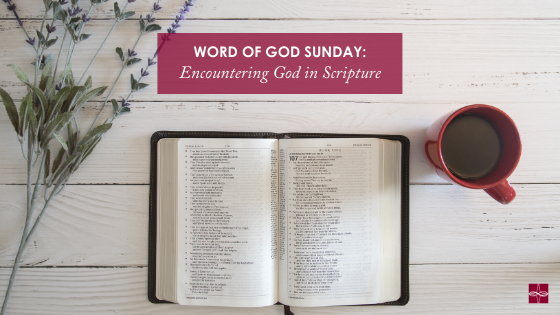
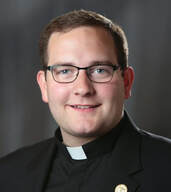
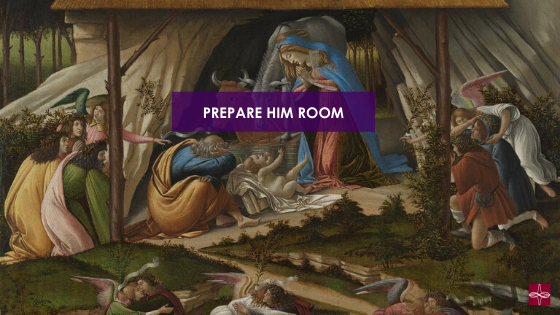

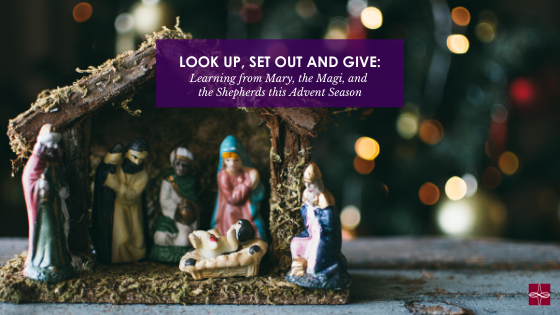
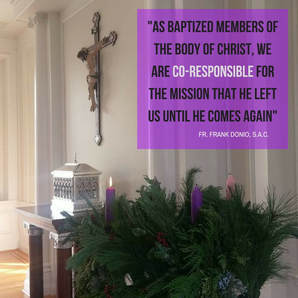
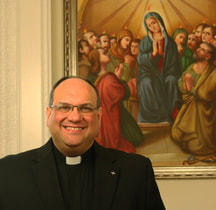
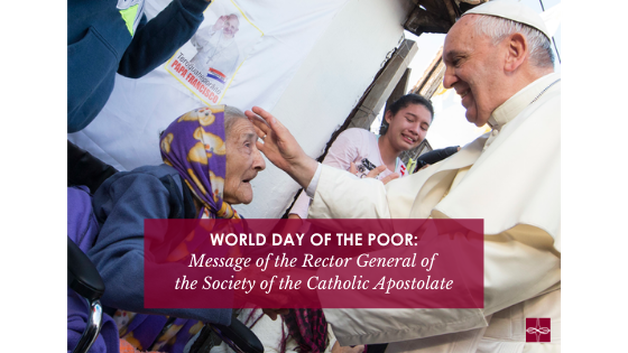
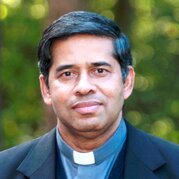
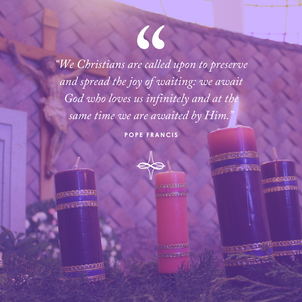
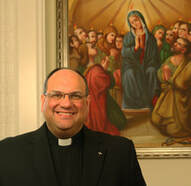


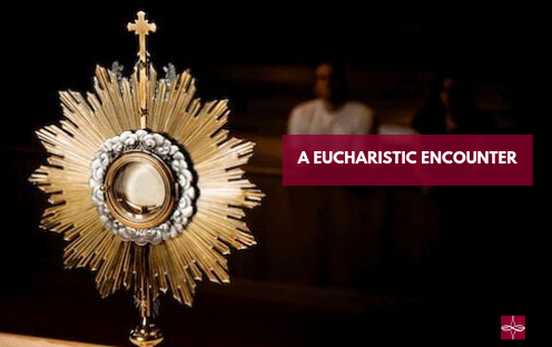

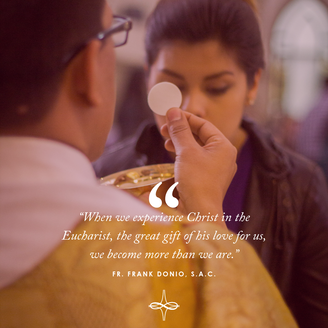
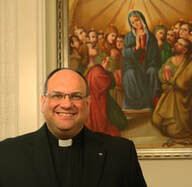
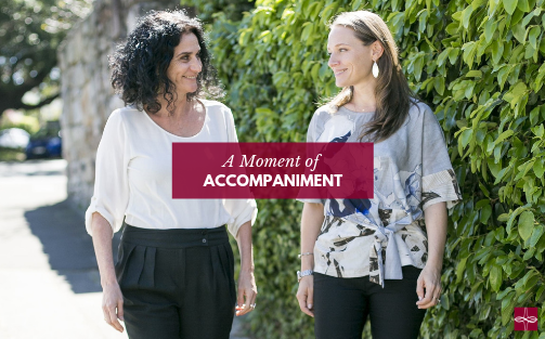


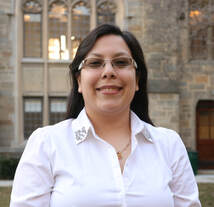
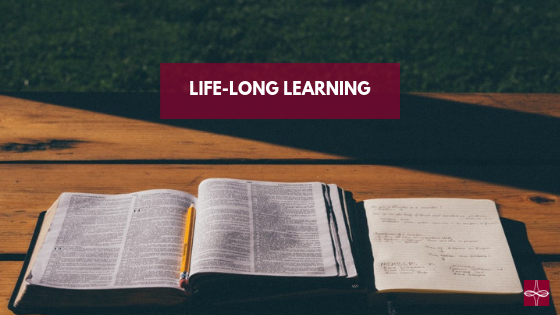

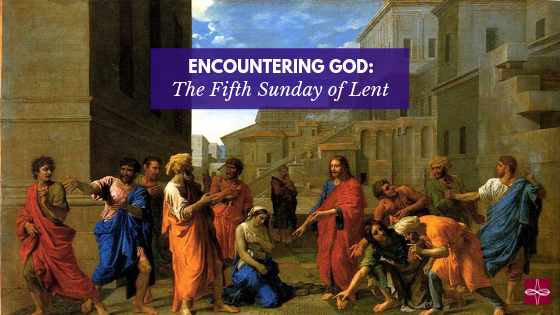
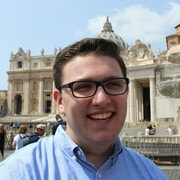
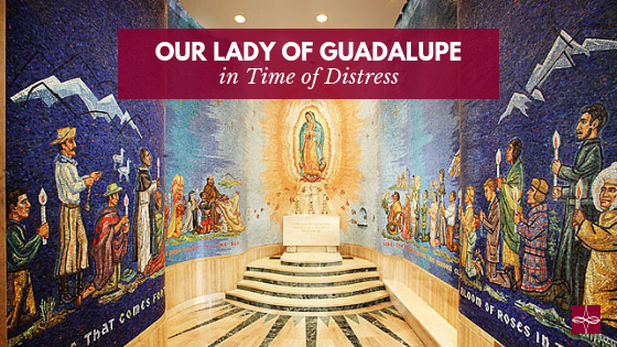

 RSS Feed
RSS Feed